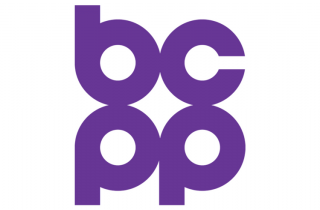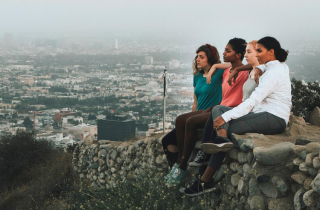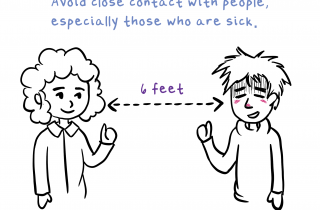BCPP releases landmark agenda to stop breast cancer before it starts: Paths to Prevention
The first-ever California Breast Cancer Primary Prevention Plan
FOR IMMEDIATE RELEASE
SEPTEMBER 8, 2020
MEDIA CONTACT:
Erika Wilhelm, Breast Cancer Prevention Partners 415.539.5005
SAN FRANCISCO —Today, Breast Cancer Prevention Partners (BCPP) released the groundbreaking Paths to Prevention: the California Breast Cancer Primary Prevention Plan, an action plan offering societal-level policy changes, rather than individual actions, to reduce breast cancer rates.
Developed by BCPP with input from a wide range of stakeholders, Paths to Prevention provides a unique blueprint for action that uses a social justice lens to weave together science and community wisdom. 23 breast cancer risk factors are addressed, including topics such as exposures to toxic chemicals, workplace exposures, exposure to ionizing radiation, structural barriers to a healthy diet and physical activity, and the impact of racism and poverty. Paths to Prevention offers a strategic and forward-thinking agenda of local, regional, and statewide actions to prevent breast cancer for all.
Nancy Buermeyer, Senior Policy Strategist of Breast Cancer Prevention Partners explains, “We were privileged to lead the process of developing Paths to Prevention and deeply appreciate the wisdom and commitment of so many contributors. Now begins the hard work to turn this extraordinary Plan into action to benefit ALL Californians.”
Including community wisdom in the development of Paths to Prevention gave voice to the experience of people typically under-represented and under-valued in science and public policy and provides the Plan a richness and relevance to communities highly impacted by breast cancer. The interventions were developed with leadership from those communities and reflect the ethos of “Don’t do anything for me without me.”
“Although Black women die at some of the highest rates from breast cancer, there is rarely a justice-centered approach to tackling the intersectional issues that contribute to the morbidity and mortality of breast cancer,” said Janette Robinson Flint, Executive Director of Black Women for Wellness. “This new initiative is working to look upstream and tackle how issues such as environmental factors like toxic chemicals in our beauty and personal care products as well as historic institutionalize racism in our society are inexorable factors in working to end breast cancer. I’m excited that I could contribute to this innovative project.”
With one in eight women facing breast cancer, this groundbreaking California Plan, funded by the California Breast Cancer Research Program, will serve as a model for the whole country and beyond. And while the focus of Paths to Prevention is breast cancer, the policy recommendations can reduce risk for numerous other cancers and life-threatening diseases.
“Breast Cancer Prevention Partners is presenting California with a gift that draws from the best of science, advocacy and community voices,” said Marion (Mhel) H. E. Kavanaugh-Lynch, MD, MPH, Director of California Breast Cancer Research Program. “This gift is a remarkable blueprint to make California a state where breast cancer is a rare occurrence. By implementing this plan, California will save lives and lead the rest of the country to systemic breast cancer prevention.”
Isis Pickens, Women of Color Breast Cancer Survivors’ Support Project explains, “Finally, a plan that takes seriously prevention as a critical part of the social and health justice work for breast cancer eradication! The process of re-imagining the role of research and treatment will demand a commitment to continued inclusion and cross-sectional interventions. Pathways to Prevention is the prototype to what is essential if we are to move beyond a world of breast cancer disease and disparity.”
Caroline Farrell, Executive Director, Center on Race, Poverty & the Environment explains, “The Pathways to Prevention report provides an overview of the cumulative impacts that lead to breast cancer. It is particularly important that the report not only looks at behavioral issues, but also political and socio-economic factors that affect health. Including pesticides and toxic exposures as part of people’s lived experience is key to achieving better outcomes.”
Scarlett Lin Gomez, PhD, MPH, Professor of University at California San Francisco explains, “Sometimes people do not have the means or the power to engage in individual behaviors that reduce risk. The really exciting thing about Paths to Prevention is that it focuses on systemic and structural factors and so is likely to have a much more profound and sustained impact, not only on breast cancer but also many other diseases that disproportionately affect communities of color and low income communities.”
Maggie Robbins, MPH, Occupational & Environmental Health Specialist of Worksafe explains, “The links between occupation and breast cancer have been downplayed in policy and public health for too long. If we want to reduce the burden of breast cancer in California, we must address working conditions — things like chemical exposure, job stress, and schedule instability. This important report combines hard science and community wisdom to bring much-needed attention to the role of the workplace in breast cancer health inequities.”
Joanne Hild, Executive Director, River Scientist of Sierra Streams Institute explains, “Sierra Streams Institute and our community have been honored to be included in the development of Paths to Prevention. We hope that our studies about the possible influences of mining contaminants on our community’s health will contribute in some way to others in the state and country. I know that many people will benefit from what you created in this comprehensive and thoughtful Plan.”
Argelia Flores, Heath Educator, California Health Collaborative explains, “Breast Cancer impacts 1 in 8 women, their families, and communities. Taking part of a listening session in the Central Valley, allowed the voices, that are rarely asked, to share concerns that are unique to this area.”
###
Breast Cancer Prevention Partners (BCPP) is the leading national science-based, policy and advocacy organization focused on preventing breast cancer by eliminating our exposure to toxic chemicals and radiation. Through science translation, public education, advocacy and corporate accountability campaigns, BCPP occupies a unique niche at the nexus of environmental health, women’s health and breast cancer prevention. Learn more at www.bcpp.org
Black Women for Wellness is committed to the health and well-being of Black women and girls through health education, empowerment and advocacy. Learn more at www.bwwla.org
California Breast Cancer Research Program mission is to prevent and eliminate breast cancer by leading innovation in research, communication, and collaboration in the California scientific and lay communities. Learn more at www.cbcrp.org
California Health Collaborative (Collaborative) is a nonprofit 501(c)3 organization committed to enhancing the quality of life and health of the people of California, particularly the underserved and underrepresented. http://healthcollaborative.org/
Center on Race, Poverty & the Environment is a 30 year old Environmental Justice organization that works with low income communities of color to build power and address environmental harms. Learn more at crpe-ej.org
Sierra Streams Institute (SSI) is a watershed monitoring, research, and restoration group based in Nevada City, California, in the Sierra Nevada foothills. Founded in 1995 as Friends of Deer Creek, SSI has grown to become an important voice in the regional scientific community—but we are still proud to call Deer Creek our home watershed. Learn more at sierrastreamsinstitute.org
University of California San Francisco is part of the 10-campus University of California, the world’s premier public research university system, and is the only one of its campuses dedicated to graduate and professional education. Driven by our public mission, we are a collection of dedicated scientists, clinicians, students and staff who strive to make the world a better place through our singular focus on health. Learn more at www.ucsf.edu
Women of Color Breast Cancer Survivors’ Support Project: Our mission is to support breast cancer survivors, to offer crisis intervention in the healing process, to educate women and families on breast health, and to actively participate in effective change as it relates to health and racial disparities. Learn more at woc4me.org
Worksafe is a California nonprofit that prevents worker injury, illness, and death by bringing justice to the workplace. Learn more at worksafe.org
Types: Press Release, Statement



